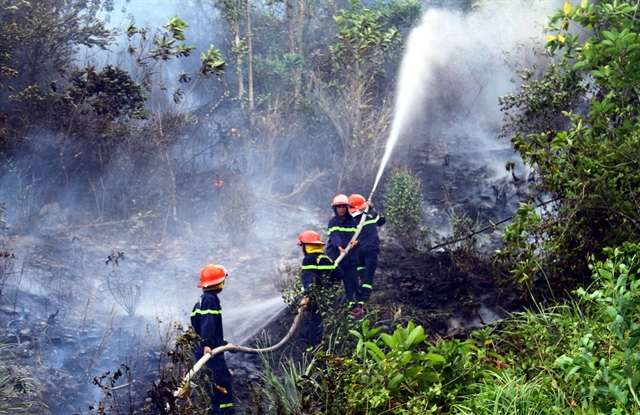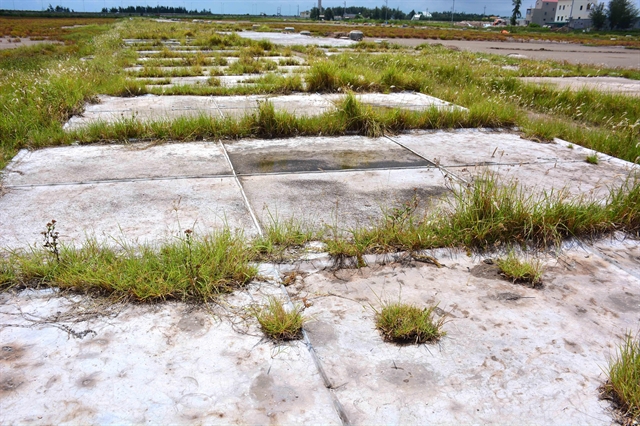▌Câu trả lời hay nhất
Although the atmospheric state is bxh indogradually shifting to the cooler phase of La Nina, Việt Nam’s central region and many countries around the world are facing prolonged intense heat, increasing the risk of forest fires.
 |
| A forest fire happened last week in the central province of Quảng Bình. — VNA/VNS Photo Tá Chuyên |
HÀ NỘI — Although the atmospheric state is gradually shifting to the cold phase of La Nina, Việt Nam’s central region along with many countries around the world are facing prolonged intense heat, leading to elevated risk of forest fires.
Not only are the number of deaths because of heat increasing, but forest fires are also occurring at an unprecedented level, causing great damage.
The latest report from the US National Oceanic and Atmospheric Administration (NOAA) shows that July this year recorded the highest average global surface temperature ever.
Specifically, the average global surface temperature in July reached 17.01 degrees Celsius, 1.21 degrees Celsius higher than the average temperature of the 20th century.
This broke the previous record set in July last year, exceeding it by more than 0.03 degrees Celsius.
July this year was become the hottest month in the 175-years of data.
Not only that, this is also the fourteenth consecutive month with a record high global temperature, lasting from June last year until now.
In Việt Nam, heatwaves and forest fire risks in the central region are at their peak this year and are expected to continue until the end of August.
Weather forecasts said that heatwaves will cover from Thanh Hóa to Ninh Thuận Province with the highest temperature ranging from 35-37 degrees Celsius, up to 38 degrees Celsius in some places.
Air humidity is expected to drop to only 45-55 per cent, creating favourable conditions for the development of hot and dry conditions.
Prolonged heat and low humidity are drying out the vegetation in forests.
The thick, dry vegetation now creates a very high fire risk. Even small mistakes with flames, or simply a cigarette butt, can cause a large fire.
In addition to the weather factor, the central region is also famous for having the largest forest area in the country.
Most of the forests are planted with pine, acacia, eucalyptus -- trees that contain a lot of essential oils, making them very flammable.
In addition, the mountainous terrain in the Central region with steep hills and strong dry winds makes the fire spread very quickly making fighting any fires difficult.
To effectively stop the fire, the firefighting force must assign a large number of workers and equipment.
According to statistics from the Forest Protection Department, since the beginning of last month, the central region has witnessed 56 forest fires, accounting for nearly half of the total number of fires since the beginning of the year.
Notably, Quảng Bình Province had consecutive fires on August 6, 9 and 12, resulting in the death of a firefighter.
Thừa Thiên-Huế, Nghệ An and Quảng Trị provinces have also recorded forest fires recently, seriously affecting the people's economy.
The Forest Protection Department has warned that up to 73 locations are at level four risk of forest fires (five is the highest). Most of them are from Thanh Hóa to Quảng Nam Province and in Bình Định, Phú Yên and Ninh Thuận provinces. — VNS











